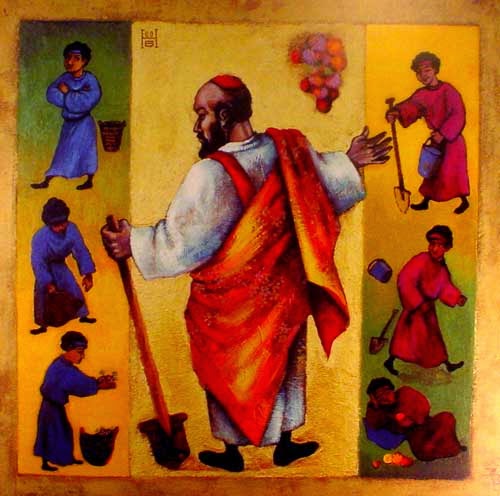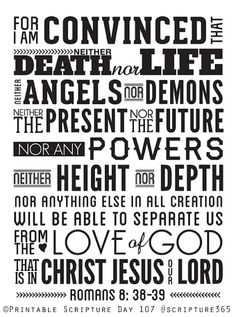Sometimes it’s hard to accept that something is in our best interest when we first hear of it. I can remember often growing up not wanting to do something like go on a retreat or join the youth group, but my parents giving me that gentle nudge to do it anyway. And then of course, when I went, I’d always have a really great experience, and then I had to admit to them that I liked it, which was harder still.
I always think of that when I hear this week’s Gospel reading. I think it’s a pretty human experience to resist what’s good for us, especially when it means extending ourselves into a new experience, or when it means having to inconvenience ourselves or disrupt our usual schedule. We don’t want to go out into the field and work today, or go help at the soup kitchen, or go teach religious education, or go on that retreat, or get involved in a ministry at the church, or join a small Christian community, or whatever it may be that’s in front of us.
I remember specifically an experience I had when I first started in seminary. I became aware that some of the guys, as their field education experience, were serving as fire chaplains. That scared the life out of me, and I said to myself that I’d never be able to do that. Two and a half years later, one of my friends at seminary asked me to join him as a fire chaplain. Figures, doesn’t it? I told him I didn’t think I had the ability to do that, but he persuaded me to pray about it. Well, when I prayed about it, of course the answer was yes, do it. And so I did, and found it one of the most rewarding spiritual experiences of my time in seminary.
People involved in ministries here at the Church can probably tell you the same kinds of stories. Times when they have been persuaded to do something they didn’t want to. They could probably tell you how much they grew as people, how much they enjoyed the experience. When we extend ourselves beyond our own comfort level for the glory of God, we are always rewarded beyond what we deserve. And that’s grace, that’s the work of God in our lives.
What’s important for us to see here is this: God extends his mercy and forgiveness and grace and calling to us all the time. We may respond in four ways. First, we may say no, and never change, never become what God created us to be. This happens all the time because we as a people tend to love our sins and love our comfort more than we love God. We would rather not be inconvenienced or challenged to grow.
We might also say no, but later be converted. That’s more okay. Let’s be clear: there is no time like the present, and we never know if we have tomorrow. But God’s grace doesn’t stop working on us until the very end. So we can have hope because God does not give up on us.
We might say yes, with all good intentions of following God, being in relationship with him, and doing what he asks of us. But perhaps we get distracted by life, by work, by our sins, by relationships that are impure, or whatever. And then we never actually become what we’re supposed to be.
Or we might actually say yes and do it, with God’s grace. We might be people who are always open to grace and work on our relationship with God. Then that grace can lead to a life of having become what God wanted of us, and that puts us on the path to sainthood, which is where we are all supposed to be.
Today’s Gospel is a good occasion for a deep examination of conscience. Where are we on the spectrum? Have we nurtured our relationship with God and said yes to his call, or are we somewhere else? And if we’re somewhere else, what is it that we love more than God? What do we have to do to get us on the right path? We know the way of righteousness. We know the path to heaven. We just have to make up our minds and change our hearts so that we might follow Jesus Christ, our way to eternal life.




You must be logged in to post a comment.